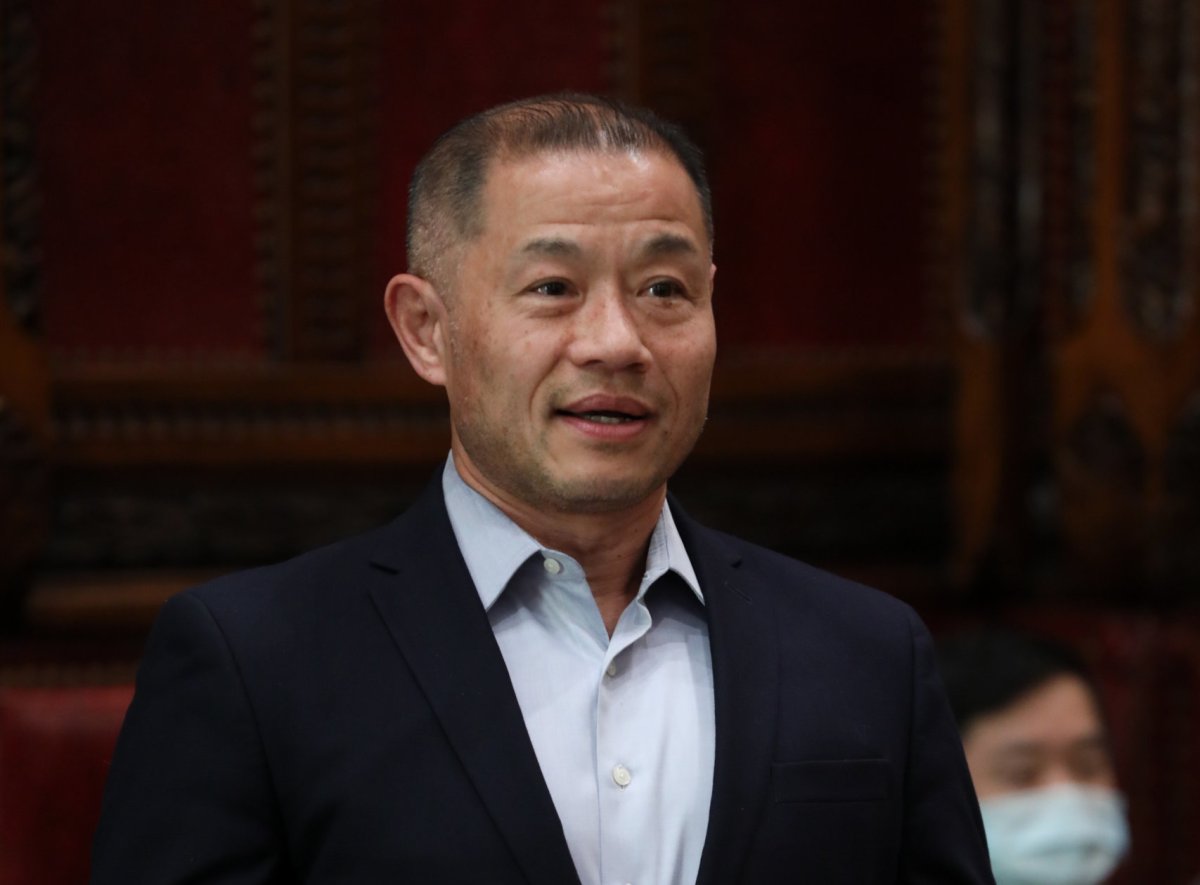New York Senator John Liu appeared at the Community Education Council 26 monthly meeting Thursday to discuss the passage of legislations S9459 and S9460.
The first legislation aims to strengthen parental input in schools by extending the system of mayoral control for the next two years. The second legislation mandates smaller class sizes in New York City public schools over the next five years.
According to Liu, the S9459 legislation puts more accountability on the mayor. The mayor would have control over a majority of the Panel for Educational Policy (PEP) appointments for the next two years. Additionally, PEP members would have one-year terms. Under the legislation, the number of PEP members would grow from 15 to 23, with the amount selected by the mayor rising from 9 to 14.
Of the 23 PEP members, at least four of them are required to be parents of students. Specifically, at least one must be the parent of an English language learner and another of a student in a special needs program. The purpose of these requirements is to help ensure parents from different communities and circumstances have their voices heard through representation.
“One of the main concerns among parents in the city is they didn’t feel like they had a voice,” Liu said. “We’re trying to engage parents better. We need to do something to make our schools better. The PEP helps make decisions on how schools are run.”
Despite the efforts made to provide voices for parents of students, some of the board members expressed concern that S9459 doesn’t do quite enough in ensuring all voices are heard. CEC 26 President Al Suhu expressed concern that parents wouldn’t be represented enough on PEP, especially when it came to the voices of the minority. He was also somewhat skeptical about just how much PEP can impact the schools, saying they mainly vote on contracts and act as bureaucracies. However, Senator Liu also said he and the Senate were already looking into how to further engage parents in the near future.
Legislation S9460 calls for a class size mandate over the next five years. The intention is to reduce class sizes in the city to 20 from Kindergarten to third grade, 23 from grades four through eight and 25 for high school. The goal is to have around 20% of the city’s schools meet these requirements by the end of the first year and add another 20% each year until all schools meet the requirements by the fifth year.
These numbers stem from a plan by the Department of Education (DOE) in 2007 in response to a campaign for fiscal equity. This plan was created after the New York State Supreme Court ruled that kids in the city weren’t getting a sound basic education following a lawsuit filed by parents in the city. Part of this was due to the fact that class sizes were too large, making it difficult for teachers to ensure each student was learning.
The Contracts for Excellence involved the state increasing funding for public schools in the city to meet fiscal equity. However, the 2008 recession halted the process. But now, after the state devoted $4.2 billion in funding for public schools last year, Liu sees this as a good time to work on reducing class sizes. This opportunity is further reinforced by the fact that school enrollment across the city has been trending downward in recent years.
“New York City is significantly larger in terms of class size than the rest of the state,” Liu said. “Now is the time to get the city’s class sizes in line with the rest of the state and with national norms.”
Some council members expressed concern that the district’s schools don’t have enough space for the students already. Creating more classes would thus, in their opinion, require either the expansion of many of the schools or the creation of more schools altogether. Additionally, there was some concern that five years may be too little time for the schools to find enough qualified teachers for the new teaching positions that would come with the extra classes.
Liu felt the DOE should be putting some of the $4.2 billion in financial aid to use by looking into expanding or building new schools to help deal with overcrowding, saying that they were already looking into finding locations where new schools can be constructed within the district.
Additionally CEC 26 voted and approved the endorsement for Superintendent Danielle Giunta to keep her position during Thursday’s meeting. According to CEC 26, Giunta’s leadership over the past eight years has been a huge boon for the district. Additionally, she is well-liked by most students and parents within the district. On Friday morning, CEC 26 and the Presidents’ Council released a joint statement to New York City Schools Chancellor David Banks in which they endorsed Superintendent Giunta to keep her position.



































